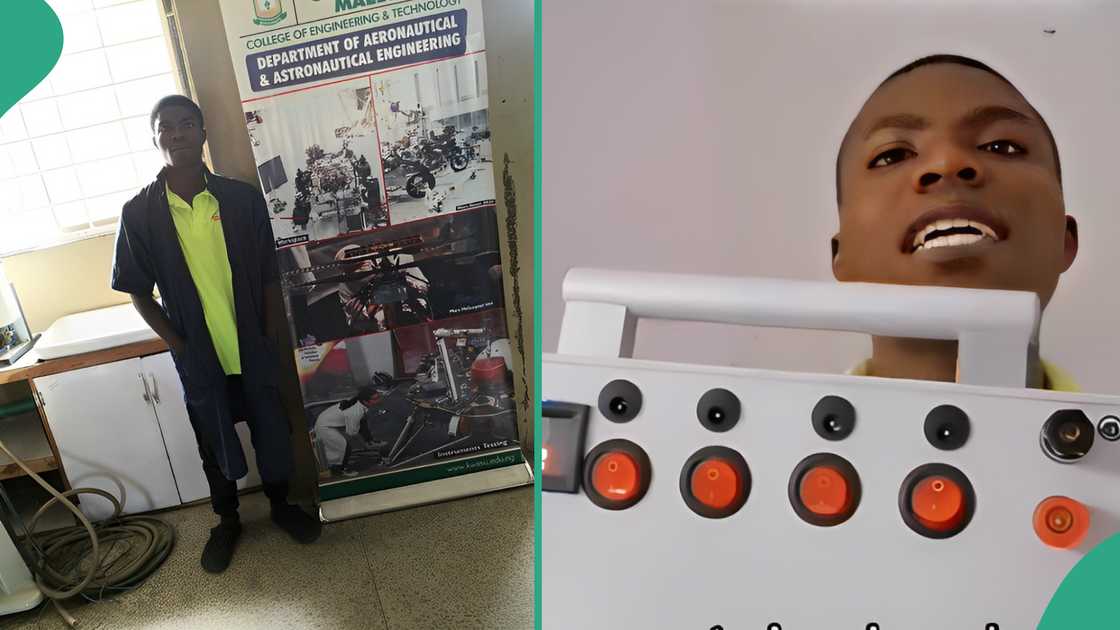Kwara State University Student Builds Solar Power Station that Charges Phones, Carries Light Bulbs
- A computer and electrical engineering student has appealed for a grant to enable him to purchase a machine for the production of solar power stations
- The Kwara State University undergraduate came up with the solar power station to solve the electricity problem of Oyo State
- In a video, he displayed the electrical gadgets the solar power station can power and how much it costs
A student of Kwara State University, Emmanuel Aanu, has built a solar power station he said would fix Oyo State's electricity problems.
According to Emmanuel, he has sold 30 units of solar power stations for N80k each and appealed for a grant to produce more.

Source: Twitter
"My name is Emmanuel, and I produce SUNPOD: A Solar Power Station to tackle electricity issues in Oyo State. I've sold 30 units at ₦80,000 each, making it more affordable than the ₦400,000 alternatives.I need this grant to purchase a machine to produce more SUNPOD for demands," Emmanuel wrote.
Gadgets Emmanuel's innovation can power
In a video Emmanuel released on X, he showed the appliances that his invention can power.
PAY ATTENTION: Click “See First” under the “Following” tab to see Legit.ng News on your Facebook News Feed!
He said it powers up to five light bulbs and can charge phones and other electrical gadgets. Emmanuel wrote:
"As an Electrical and Computer Engineering student at Kwara State University. I'm addressing Nigeria's electricity problems by creating solutions like SUNPOD, a solar power station. It provides energy, lighting up bulbs, charging phones, and powering other electrical gadgets."
Watch his video below:
Legit.ng reported that a Nigerian man had built a solar system with 400 lithium batteries.
Nigerian man invents light-producing device
Meanwhile, Legit.ng previously reported that a Nigerian man had invented a device that produces light in a simple way.

Read also
Lagos bus driver goes to filling station and buys cheap fuel 'sold at N260' for his car tank
The device is called a WATTer Lamp, and it produces light using a simple water and salt solution. The inventor, Samuel Yakubu, said he started working on the device in 2003, using kerosene, unripe fruits, and rechargeable batteries.
He noted that his aim was to help families to afford it irrespective of social status. Yakubu said he later sent the prototype of the product to China, where it was modified, and now it is being marketed.
PAY ATTENTION: Unlock the best of Legit.ng on Pinterest! Subscribe now and get your daily inspiration!
Source: Legit.ng


